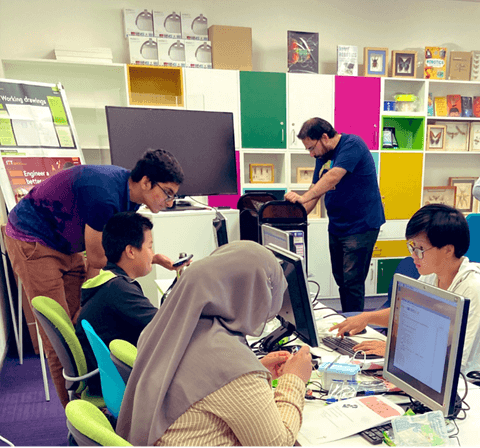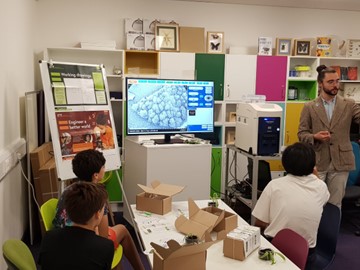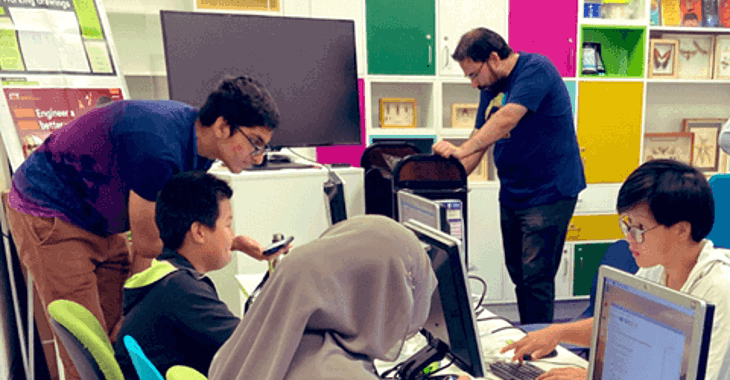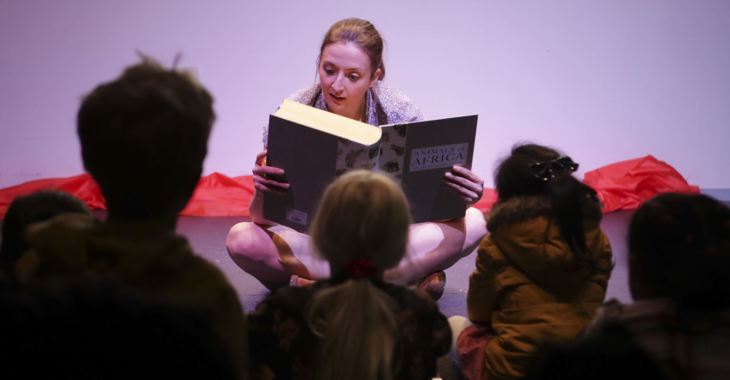Urban NatureBots: Exploring the natural world through engineering and technology
This Ingenious funded project was a programme designed to teach young people about the natural world, using coding. The project ran in partnership with the University of Leeds and Leeds Museums and Galleries, taking inspiration from Leeds Libraries specialist nature collections.
With a focus on nature and climate change, the project developed "nature bots" - coded robots inspired by these collections - to teach coding skills to a diverse group of 7–14-year-olds and their families. This included people from refugee and asylum-seeking backgrounds who may not otherwise have access to this type of technology.
Claire Duffield and Liam Garnett, both Senior Librarians, brought in their expertise in public engagement and project management.
Leeds Museums and Galleries provided the objects and animal specimens with Digital Learning Officer Izzy Bartley sharing her knowledge and expertise, helping schools to explore museum objects through the MyLearning site.

Collaboration with engineers
Dr Viktor Doychinov, a researcher at the University of Leeds, was instrumental in the project's success, using his problem-solving and coding skills to help develop the programme.
Claire described Viktor's support as “critical, especially when it came to purchasing the necessary equipment and helping the Leeds Libraries team to improve their coding skills and how to use the tech." This meant that they could continue to inspire young people to develop their digital engineering skills long after the project's completion.
Viktor found the experience in communicating complex ideas to library teams and engagement with young people instrumental in his successful application for a teaching position at Bradford University.

Reflections on the project
Leeds Libraries worked with Damasq, a local charity that works with refugees, asylum seekers and black minority ethnic communities in Leeds, to provide a safe and welcoming environment for young people taking part in the workshops. While some children picked up the engineering skills quickly, English was a second language for some of the participants, and Claire said, " this meant we had to pitch the lessons in a way that was accessible and exciting for everyone, ensuring lesson plans were adaptable for different learning styles and speeds .”
To reach further audiences, the team decided to go out on location and adapted the kit to make the project transportable. They also expanded the programme to an older age group through the IntoUniversity programme, created in partnership with the University of Leeds and The Queen’s Trust.
Liam worked with students from a local tech college to develop video tutorials that are hosted on Leeds Libraries Online Learning platform that show how to use the Naturebot's kits. These kits are loaned to local schools, and the teachers use the videos he created to support students' learning. This method of peer-to-peer learning creates diverse and relatable role models. Leeds Libraries Online Learning is free to access, and Liam is delighted that, "these videos have even been accessed as far afield as New Zealand."
Liam’s favourite moment from the project was working with Milo Philips, Assistant Curator of Entomology, from Leeds Museums and Galleries. “Milo brought an electron microscope from the Natural History Museum in London so that young people could see the structures behind insect wings.” This was the first time this equipment had been moved from London!
Claire's favourite part of the project was working with young people to use the Raspberry Pi camera to film plants as they woke up every day. “Their joy at caring for and monitoring their plants was inspiring.”
Tips for a successful Ingenious project
Firstly, Claire says "to work with other people who have the same goals”. Collaborating and sharing resources can help projects reach a wider audience and can enable people to learn from one another.
Additionally, having an adaptable project plan is key. As the team experienced, unexpected challenges can arise, but having a flexible plan in place helped to overcome them.
Legacy
Since the completion of the Leeds Libraries project, the team has continued to use the kit in Code Clubs, with six clubs running across the city and now have the skills and extra technology to explore a wider range of projects.
Through partnerships with Leeds Museums and Galleries, the University of Leeds, and Leeds Libraries, the team inspired young people to develop their digital engineering skills and explore the intersection of technology and nature.


Ingenious public engagement grants scheme
Ingenious is a public engagement grants scheme for projects that engage the public with engineers and engineering while providing engineers with training and opportunities in public engagement. Clo…
